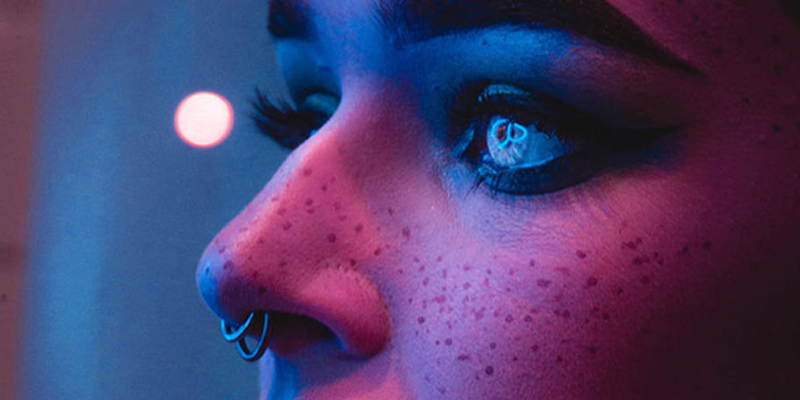
The thematic series "Res no és mentida" (Nothing is a lie), which kicks off on 22 January
Three lectures, four performances, four post-performance discussions, one semi-staged production, two dramatized readings, an open mic session, an encounter between playwrights and YouTubers, and a youth drama laboratory comprise the thematic series Res no és mentida (Nothing is a lie), which kicks off on 22 January at the Sala Beckett. The goal pursued by this initiative, organized jointly by the Universitat Oberta de Catalunya (UOC) and the Sala Beckett theatre, is to generate debate about the relationship between young people and fiction in the digital era.
The series, which will bring together playwrights, academics and scientists from different disciplines, seeks to "foster a critical but at the same time entertaining reflection on fiction and youth: what constitutes the dividing line between fiction and reality for younger audiences, what the new aesthetic and literary conventions are, and how these conventions relate with the digital universes – from video games to YouTubers ", explained Elisenda Ardèvol, who teaches at the UOC's Faculty of Arts and Humanities and is the series' curator. The opening lecture entitled “Realitat i ficció: Una frontera cultural?” (Reality and fiction: A cultural frontier?), will be given at 7 pm on 22 January by anthropologist and writer Albert Sánchez Pinyol.
As well as the three lectures, the Res no és mentida series also includes four performances: El chico de la última fila (The guy in the back row) by Juan Mayorga, with a post-performance discussion on 24 January by expert in literary studies and UOC professor Teresa Iribarren; POCAHONTAS o la verdadera historia de una traviesa (POCAHONTAS or the true story of a naughty girl) by Bàrbara Mestanza, with a post-performance debate on 14 February with mathematician, humanist, writer and UOC professor Maria Antonia Huertas; THIS IS REAL LOVE by Col·lectiu VVAA, with a post-performance debate on 7 March with expert in the study of communication media,
cinema and fiction and UOC professor Jordi Sánchez Navarro; and Andrea pixelada (Andrea pixeled) by Cristina Clemente, with the participation of YouTuber scholar José Miguel Tomasena on 20 March.
With this joint project between the UOC and the Sala Beckett, the University once again goes beyond academic circles to reach out to the general public, promoting open knowledge with and for everyone. "We want the UOC to be an open, osmotic space, a knowledge hub that fosters the exchange of ideas between different social agents, because knowledge is not the sole preserve of universities", Pastora Martínez, UOC Vice President for Globalization and Cooperation, explained.
The lectures are free for all members of the UOC community, but prior registration is required. The UOC community is also entitled to a discount in the price of the tickets for the performances.
Res no és mentida (Nothing is a lie). Young people and fiction in the digital era
What gateways does today's youth use to enter the world of fiction? What place does it have in their lives? How do they relate to it? Is it really true that they don't read? What is the role played by television series, video games or social media? And what happens when we get older? What do we do with the stories we used to read when we were children? What do they tell us about the world? The Res no és mentida series seeks to incite discussion about these and other issues proposed by the series' curator.
All societies are built on certain world views. The writer's role is akin to that of the shaman; he travels outside of his body, sees other realities, other world views and comes back to tell us about them. By including fantasy, fiction goes beyond reality and can say truths that the discourses about reality conceal. Like the writer, the anthropologist delves into the world views that drive our realities.
Is the difference between reality and fiction common to all cultures? What can anthropology and literature contribute to a critical understanding of the contemporary world, post-truth, story spinning and the attempts to control our world view?
In this session, we propose a speculative fiction: In a world where robots, virtual reality and augmented reality are intermeshed inseparably with all aspects of our daily lives, new generations no longer distinguish between what is virtual and what is real. We invite three experts in the study of awareness and emotions – a sociologist, a neuroscientist and a science philosopher – to analyse the consequences that this may have for the future of our species, how we perceive our body and how we build our subjectivity.
Simulation and verisimilitude in video games; authenticity and pretence in social media; imitation, remixing and copying in creative practices; the gamification of daily life; the quantification and monetization of sociability; collaboration between peers, consumption and conformity in young people's and teenagers' ideals; or critical thinking and resistance... In short, we will talk about everything that goes on in young people's world within a dialogue that takes in three levels – education, communication and creative experimentation – and in which you are invited to contribute your opinions. The overarching goal is to examine, within an open framework, how today's boys and girls entertain themselves, relate with each other, learn and grow.
